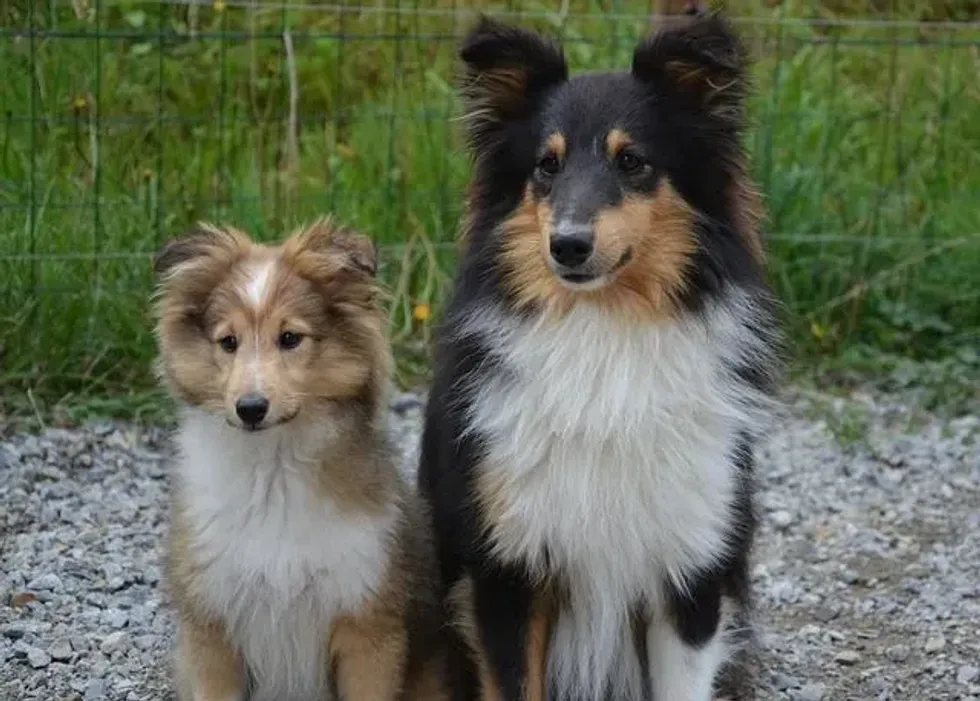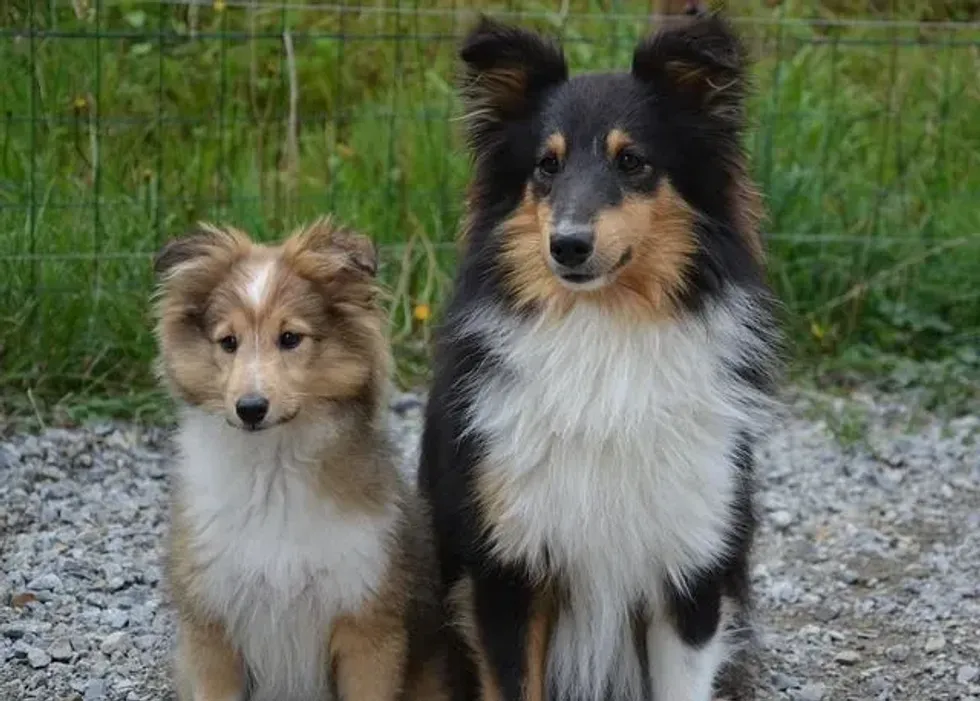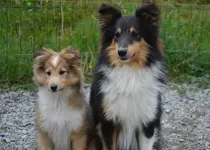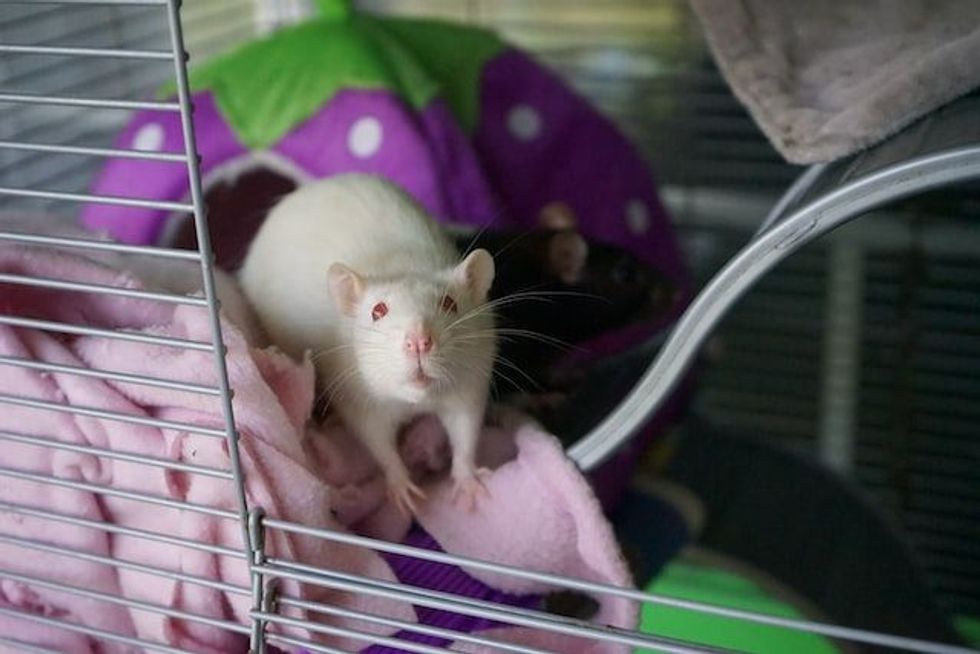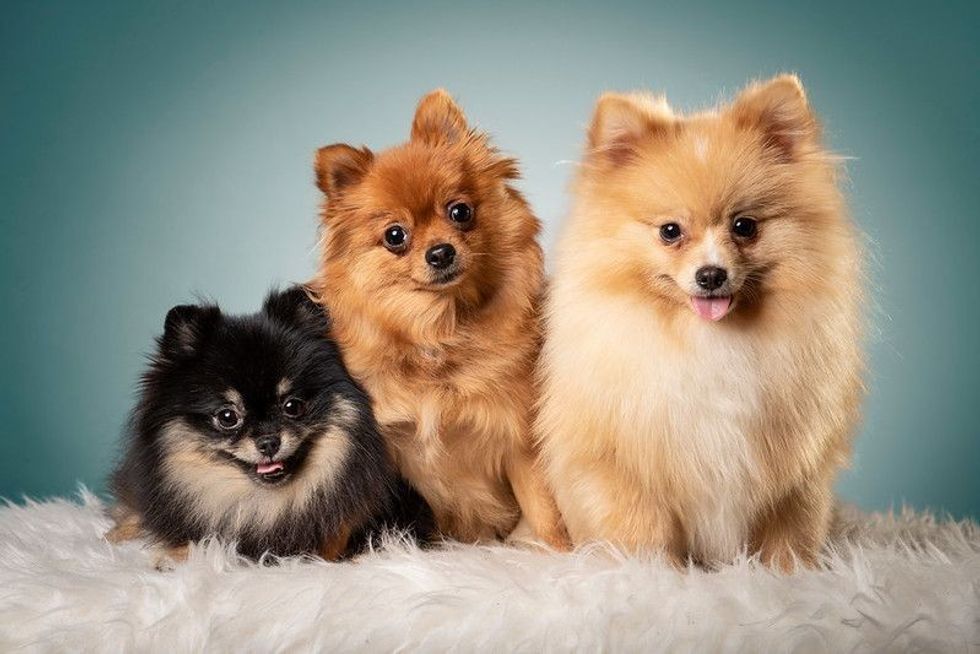All You Need To Know About A Shetland Sheepdogs Temperament

The Shetland Sheepdog, commonly recognized as the Sheltie, is a breed of herding dogs that emerged in Scotland's Shetland Islands.
Whenever it pertains to Shetland Sheepdogs, their name itself gives away a lot about what to anticipate from them in terms of behavior: sheepdog. These are farm animals who were developed for specific, crucial tasks, and their owners immediately notice how clever they are and what that intelligence necessitates in order to thrive.
Shelties are dog breeds that are from the Shetland Islands, which are located between Scotland and Norway. For many years, they were referred to as 'Toonies,' a Norwegian term that means' farm.'
Farmers bred these canines by mixing Border Collies with smaller dogs with a herding personality in order to safeguard their herds. Shelties retain their herding instincts to this day, willing to herd their family, smaller animals in the house, and, frighteningly, automobiles on the street.
Shelties were brought to England and Scotland in the early 1800s when farmers quickly began breeding smaller and fluffier variations of this breed to make them appealing for tourists to buy. By the end of the 19th century, there had been so much crossbreeding that the pure Sheltie was rapidly vanishing.
When it comes to film, the Shetland Sheepdog is not as well-known as its counterpart, the Border Collie. Having said that, this breed is depicted in the famous video game Nintendo Dogs.
Sable, Tri-Color, Blue Merle, Bi Blue, and Bi Black are examples of the five Sheltie hues. Blue merle shelties are born when one of the parents carries the merle gene.
Let’s find out more facts about this loyal breed! Afterwards, also check how do you know when your dog is about to give birth and how fast can a dog run.
Are shelties aggressive?
The chance of a dog displaying aggressive behavior in any given setting differs significantly from dog to dog. With relatively little stimulus, some dogs might become hostile. Others may be exposed to a wide range of potentially dangerous cues and situations yet never bite.
Although a dog's barking may be more dangerous than his bite, the majority of us would prefer not to know. Aggressive behaviors include growling, showing teeth, snarling, snapping, and even biting. Although these signals are one of the few methods of communication accessible to dogs, they are often rejected by humans or children.
Shetland sheepdogs are noted for having intelligence, a sensitive, calm, pleasant, and appealing demeanor. While not normally aggressive, certain Shelties might nip random people, whether they be adults or young children.
Domesticated animals, like any other species, have the ability to become violent out of fear and defense for their life if they are raised in unsanitary environments by breeders. Shelties are cautious about strangers.
As a result, they make excellent watchdogs and are prone to welcome strangers with a barrage of barks. When they are enthusiastic, they will also bark.
The Typical Shetland Sheepdog Temperament
Shelties are another name for Shetland Sheepdogs. Shelties are a type of working dog that is used for herding. Historically, they were used to herd sheep, poultry, and sometimes even ponies! Shelties are distinct in that they are smaller than many other herding breeds.
They do, however, pack a load of personality into their little bodies. A Shetland Sheepdogs temperament is noted for their energy and devotion and being sensitive to their humans.
Shelties are so plentiful that the majority of them are raised and sold by breeders who have no knowledge of how to raise good-tempered dogs. Several high-strung Shelties exhibit neurotic traits, including skittishness, hyperactivity, and mindless yapping, according to obedience teachers and behavioral consultants. Shetland Sheepdogs are recognized for being lively and affectionate toward their owners.
They are extremely faithful, like several other herding breeds. However, they can be wary of strangers and unfamiliar animals. They're likewise noted for displaying their innate herding tendencies in daily life!
Are Shetland Sheepdogs easy to train?
Shelties are smart, lively, and affectionate dog breeds. Because of their intelligence and drive to please, they can be simple to train.
However, they may be a bit too clever for their own good and are known to be quite stubborn, so you may have to work a little harder to maintain your Sheltie and ensure that they are engaged and concentrated during the training.
You will be capable to train your Sheltie as well as assist him to become a well-behaved and devoted, sensitive family member with time and care. Crate training will provide various advantages.
For instance, it will help your Sheltie to perceive the box as a safe and comfortable environment.
Furthermore, crate training will make it easier to carry him to the vet when the time does come. Place your Sheltie in a compact room, such as a bathroom, or a small portion of a bigger room, such as the kitchen, where the floors are washable.
Arrange a puppy pee pad in that location so your Sheltie has a spot to relieve himself if you are absent for an extended amount of time. Your Sheltie will be able to explore more parts of your home once he has been house trained.
Shelties usually learn commands the first time they are taught. Sit, wait, come, and bow are basic instructions to train your sheltie. Because a Sheltie's barking may be sharp and loud, you must train your Sheltie not to bark quite so much.
This training will begin with you instructing him to bark or 'speak,' followed by a direction to be 'silent.' Because of his intellect and strong activity level, your Sheltie is an excellent candidate for agility training. Jumping, climbing, and maneuvering through obstacles are all part of agility training.
Are Shetland Sheepdogs good family pets?
Shetland Sheepdogs are well-known for their calm, charming, and appealing demeanor. They are also lively and loving, which has helped them become beloved family pets. Strangers frighten Shelties. As a result, they make excellent pet watchdogs and are prone to welcome strangers with a barrage of barks.
Shetland Sheepdogs are well-known for their love and affection, and they make a good family companion in many ways. They are excellent with small children, thanks in part to their tiny size, soft nature, and openness to caressing. This makes things a lot easier for young children who are afraid of dogs.
The Shetland Sheepdog is a fascinating, loving, and loyal dog that is suitable for both professional and beginner dog owners. These canines are better suited for calmer or older children, and they get along well with other animals. They might be reticent and bashful towards strangers.
The Sheltie requires a steady environment to live in and dislikes loud noises or uncomfortable situations. Shetland Sheepdogs have a double coat and are a delicate breed that needs a loving, caring family. The Shetland Sheepdog is a natural herder, and one of its tricks for keeping sheep in line is to nibble at their heels.
This is not aggressive behavior, but even when maintained as part of a family, they may be using this strategy to gently herd youngsters as well as other pets. Initial training will help minimize heel nipping and establish a positive relationship between your dog and any youngsters in the family.
Do Shetland Sheepdogs like other dogs?
Definitely! The majority of Shetland Sheepdogs get along nicely with an adult dog or an older dog. Shetland Sheepdogs are generally a calm breed that gets along well with other canines. If your other dogs are little, though, you should be wary of the Sheltie's inherent inclinations.
These puppies are constantly eager to meet new canines and create new canine pals, and they are always lively and nice to other puppies. Even if they don't dwell with fellow Shelties, a Sheltie has a strong predilection for other Shelties.
Yet, they are wary of new canines of many other breeds. They get on well with cats as long as the cat puts the Sheltie in his place for attempting to herd him.
Shelties get along well with "gentle giant" breeds such as Maremma and Great Pyrenees since they are really wonderful and would be quite kind with the Shelties.
Shelties should preferably be introduced to additional pets like an adult dog slowly and on neutral ground, but if this isn't achievable, proceed carefully and quietly. If you hurry the early contacts, all of the animals will be stressed, making it much more difficult to establish successful introductions.

Common Health Conditions
The Sheltie breed is prone to a variety of health problems, including epilepsy, vWD, or Von Willebrand's disease, a kind of hemophilia (bleeding illness) caused by an absence of a certain blood clotting factor. Thyroid issues, a frequent knee ailment, and the reason for lameness in dogs is the luxating patella.
PRA, or Progressive Retinal Atrophy, is a hereditary, non-painful, inherited retinal disease that affects both eyes at the same time and eventually leads to blindness. Hip dysplasia, seizures, and heart issues have no cure.
Epilepsy is a severe worry in Shelties, as is heart disease or patent ductus arteriosus. Shelties suffer from the most severe type of von Willebrand's blood-clotting disorder. Bladder cancer, also known as transitional cell carcinoma, is more common in Shetland Sheepdogs than in many other breeds. Diabetes and hypothyroidism are examples of hormonal/endocrine system illnesses.
As per the Thyroid Database at Michigan State University, close to 19% of Shetland Sheepdogs exhibit low thyroid activity. Skin issues are typical in Shetland Sheepdogs, as they have a double coat, particularly have allergies.
The coat of the Sheltie breed induces itchy skin and frequently result in bacterial skin infections. Additional coat or skin issues in dog breeds is the result of autoimmune illnesses, in which the immune system malfunctions and attacks its own skin.
Pemphigus and lupus are two autoimmune disorders that damage the skin in the Shelties. Inherited deafness can develop in Shelties, particularly those with a lot of white on their head. The most concerning orthopedic illness in Shetland Sheepdogs is a degenerative hip disease known as Legg-Calve-Perthes. Shelties are susceptible to a serious neurological condition known as degenerative myelopathy.
It starts with weakness in the back legs and can develop to complete paralysis.
Shelties are susceptible to losing color on their nose as well as the muzzle, which can be induced by nasal solar dermatitis or lupus, but most usually by a harmless disease known as "snow nose" in which the nose only loses color in the colder months.
Shetland Sheepdog Behavior
The Sheltie has several excellent features in the opinion of pet owners, including a high energy level, being robust, and being kind. The Shetland Sheepdog personality qualities can range from energetic and extroverted to reserved and shy, depending on their bloodlines.
This will also differ depending on how well they have been socialized from an early age.
The Shetland Sheepdog is a lively dog that is a quick, light-footed runner and an acrobatic, beautiful jumper. Don't be deceived by his small stature; this average intelligent breed is descended from energetic herding dogs and requires more activity than many other little dogs. Shelties, moreover, require "mental exercise."
These clever canines can't just sit around in the backyard doing nothing. Shelties need mental stimulation, like advanced obedience training, agility, herding, or demanding exercise you engage with them, regardless of the exercise is only fetching balls and discovering hidden toys, to be content and well-behaved.
Is a Sheltie right for me?
If you're looking for a dog that's small, light on its feet, and graceful having medium weight, has a beautiful feathered coat in a wide range of striking colors, is agile and animated, working dogs with a quick light-footed sprinter and jumper, then the Sheltie may be the dog for you.
It has a "soft" personality, is gentle, sympathetic, brave around strangers and other living creatures, and is vibrant and observant, and learns swiftly.
It is important that you provide your Sheltie with enough exercise and mental stimulation to combat boredom.
Problems that you may encounter with a pet Sheltie include separation anxiety, destructive behavior and barking when left alone for an extended period of time, shyness, or fearfulness in certain lines, especially when not sufficiently socialized or kept alone, extreme sensitivity to tension and loud noises, the pursuit of moving objects (instinctive herding breed behaviors), barking, repeated brushing and combing of the outer coat, excessive shedding of the coat, and the possibility of major health problems.
Taking all of this into account, make sure you only adopt the Shetland Sheepdog dog breed from a reputable breeder to ensure that your pet has had all of the necessary health checks and enjoys good health.
Here at Kidadl, we have carefully created lots of interesting family-friendly facts for everyone to enjoy! If you liked our suggestions for Shetland Sheepdog temperament then why not take a look at do dogs know when you are sad, or Shetland Sheepdog facts.
We Want Your Photos!
More for You
See All
Bachelor of Arts and Law specializing in Political Science and Intellectual Property Rights

Anusuya MukherjeeBachelor of Arts and Law specializing in Political Science and Intellectual Property Rights
With a wealth of international experience spanning Europe, Africa, North America, and the Middle East, Anusuya brings a unique perspective to her work as a Content Assistant and Content Updating Coordinator. She holds a law degree from India and has practiced law in India and Kuwait. Anusuya is a fan of rap music and enjoys a good cup of coffee in her free time. Currently, she is working on her novel, "Mr. Ivory Merchant".
Disclaimer
1) Kidadl is independent and to make our service free to you the reader we are supported by advertising. We hope you love our recommendations for products and services! What we suggest is selected independently by the Kidadl team. If you purchase using the Buy Now button we may earn a small commission. This does not influence our choices. Prices are correct and items are available at the time the article was published but we cannot guarantee that on the time of reading. Please note that Kidadl is a participant in the Amazon Services LLC Associates Program, an affiliate advertising program designed to provide a means for sites to earn advertising fees by advertising and linking to Amazon. We also link to other websites, but are not responsible for their content.
2) At Kidadl, we strive to recommend the very best activities and events. We will always aim to give you accurate information at the date of publication - however, information does change, so it’s important you do your own research, double-check and make the decision that is right for your family. We recognise that not all activities and ideas are appropriate for all children and families or in all circumstances. Our recommended activities are based on age but these are a guide. We recommend that these ideas are used as inspiration, that ideas are undertaken with appropriate adult supervision, and that each adult uses their own discretion and knowledge of their children to consider the safety and suitability. Kidadl cannot accept liability for the execution of these ideas, and parental supervision is advised at all times, as safety is paramount. Anyone using the information provided by Kidadl does so at their own risk and we can not accept liability if things go wrong.
3) Because we are an educational resource, we have quotes and facts about a range of historical and modern figures. We do not endorse the actions of or rhetoric of all the people included in these collections, but we think they are important for growing minds to learn about under the guidance of parents or guardians.
